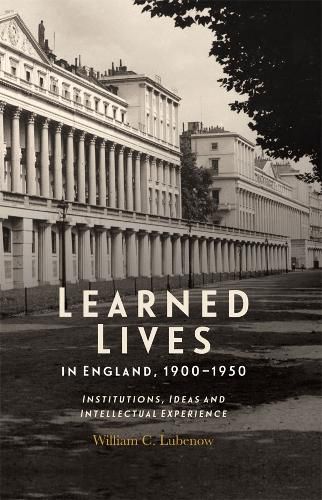Readings Newsletter
Become a Readings Member to make your shopping experience even easier.
Sign in or sign up for free!
You’re not far away from qualifying for FREE standard shipping within Australia
You’ve qualified for FREE standard shipping within Australia
The cart is loading…






This book explores the tangled relationships between knowledge and politics during the first fifty years of the twentieth century. Changes within universities, particularly in Oxford, Cambridge, and the London School of Economics,made them, more than before, research institutions. Additionally, renovations within the grand empires of learning, represented by the Royal Society of London and the British Academy, lead to the recognition and acceptance of different forms of learning. The less formal coteries such as the Bloomsbury Group, the Society for the Protection of Knowledge, and the Scholarship and Theoretical Biology Club, are not neglected in this exploration of learned life.Indeed, members of all these societies transported knowledge from North America and the Continent, especially from the Warburg Institute, shifting the demographic and conceptual bases of British intellectual life. Thus, certain important twentieth-century themes transpire throughout this study: specialization, professionalization, objectivity, the emergence of the expert, and the rise of the social sciences.
The twentieth century, with its hotand cold wars, distorted intellectual life by demands for application and for useful research. Learned people in Britain seduced themselves by patriotism and became complicit by developing defensive cliches seeking to explain howBritish knowledge was somehow different from German, and later, Soviet knowledge. If objectivity was the great discovery of the nineteenth century, as Lubenow demonstrated in Only Connect : Learned Societies in Nineteenth Century Britain (2015), this book shows that uncertainty was the great discovery of the twentieth century.
$9.00 standard shipping within Australia
FREE standard shipping within Australia for orders over $100.00
Express & International shipping calculated at checkout
This book explores the tangled relationships between knowledge and politics during the first fifty years of the twentieth century. Changes within universities, particularly in Oxford, Cambridge, and the London School of Economics,made them, more than before, research institutions. Additionally, renovations within the grand empires of learning, represented by the Royal Society of London and the British Academy, lead to the recognition and acceptance of different forms of learning. The less formal coteries such as the Bloomsbury Group, the Society for the Protection of Knowledge, and the Scholarship and Theoretical Biology Club, are not neglected in this exploration of learned life.Indeed, members of all these societies transported knowledge from North America and the Continent, especially from the Warburg Institute, shifting the demographic and conceptual bases of British intellectual life. Thus, certain important twentieth-century themes transpire throughout this study: specialization, professionalization, objectivity, the emergence of the expert, and the rise of the social sciences.
The twentieth century, with its hotand cold wars, distorted intellectual life by demands for application and for useful research. Learned people in Britain seduced themselves by patriotism and became complicit by developing defensive cliches seeking to explain howBritish knowledge was somehow different from German, and later, Soviet knowledge. If objectivity was the great discovery of the nineteenth century, as Lubenow demonstrated in Only Connect : Learned Societies in Nineteenth Century Britain (2015), this book shows that uncertainty was the great discovery of the twentieth century.